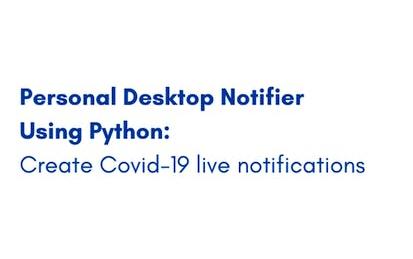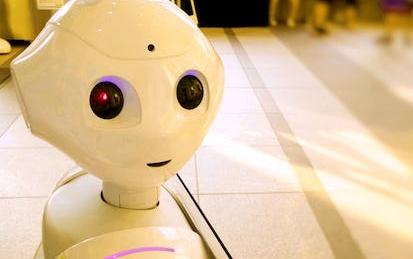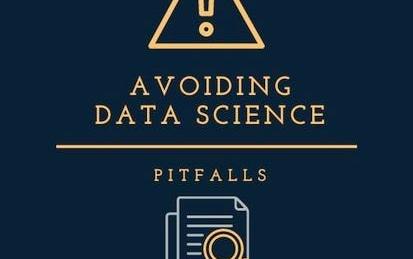

دوراتنا

Introduction to High-Throughput Materials Development
This course is an introduction to high-throughput experimental methods that accelerate the discovery and development of new materials. It is well recognized that the discovery of new materials is the key to solving many technological problems faced by industry and society. These problems include energy production and utilization, carbon capture, tissue engineering, and sustainable materials production, among many others. This course will introduce the learner to a remarkable new approach to materials discovery and characterization: high-throughput materials development (HTMD).
-
Course by

-
 Self Paced
Self Paced
-
 16 ساعات
16 ساعات
-
 الإنجليزية
الإنجليزية

Generalized Linear Models and Nonparametric Regression
In the final course of the statistical modeling for data science program, learners will study a broad set of more advanced statistical modeling tools. Such tools will include generalized linear models (GLMs), which will provide an introduction to classification (through logistic regression); nonparametric modeling, including kernel estimators, smoothing splines; and semi-parametric generalized additive models (GAMs). Emphasis will be placed on a firm conceptual understanding of these tools.
-
Course by

-
 Self Paced
Self Paced
-
 42 ساعات
42 ساعات
-
 الإنجليزية
الإنجليزية

Introduction to Designing Data Lakes on AWS
In this class, Introduction to Designing Data Lakes on AWS, we will help you understand how to create and operate a data lake in a secure and scalable way, without previous knowledge of data science! Starting with the "WHY" you may want a data lake, we will look at the Data-Lake value proposition, characteristics and components.
-
Course by

-
 Self Paced
Self Paced
-
 13 ساعات
13 ساعات
-
 الإنجليزية
الإنجليزية

Linear Algebra for Machine Learning and Data Science
Newly updated for 2024! Mathematics for Machine Learning and Data Science is a foundational online program created by DeepLearning.AI and taught by Luis Serrano. In machine learning, you apply math concepts through programming. And so, in this specialization, you’ll apply the math concepts you learn using Python programming in hands-on lab exercises.
-
Course by

-
 Self Paced
Self Paced
-
 22 ساعات
22 ساعات
-
 الإنجليزية
الإنجليزية

Data Science Methodology
If there is a shortcut to becoming a Data Scientist, then learning to think and work like a successful Data Scientist is it. In this course, you will learn and then apply this methodology that you can use to tackle any Data Science scenario. You’ll explore two notable data science methodologies, Foundational Data Science Methodology, and the six-stage CRISP-DM data science methodology, and learn how to apply these data science methodologies.
-
Course by

-
 15 ساعات
15 ساعات
-
 الإنجليزية
الإنجليزية

Algebra and Differential Calculus for Data Science
Are you interested in Data Science but lack the math background for it? Has math always been a tough subject that you tend to avoid? This course will teach you the most fundamental Calculus concepts that you will need for a career in Data Science without a ton of unnecessary proofs and techniques that you may never use. Consider this an expressway to Data Science with approachable methods and friendly concepts that will guide you to truly understanding the most important ideas in Differential Calculus.
-
Course by

-
 Self Paced
Self Paced
-
 8 ساعات
8 ساعات
-
 الإنجليزية
الإنجليزية

Healthcare Analytics Essentials
This course is best suited for individuals currently in the healthcare sector, as a provider, payer, or administrator. Individuals pursuing a career change to the healthcare sector may also be interested in this course. In this course, you will have an opportunity to examine topics related to data-driven decision making in healthcare. You will be asked to consider both the patient and provider perspective and their contributions to improving the quality of care provided.
-
Course by

-
 Self Paced
Self Paced
-
 13 ساعات
13 ساعات
-
 الإنجليزية
الإنجليزية

Personal Desktop Notifier in Python: Covid-19 notifications
By the end of this project, you will create personalized Desktop notifications using python. You will be able to effectively use different python libraries to fetch data from the internet, process the data, and present the data as notifications. In this project, we will make a Covid-19 news notification to help to be always updated about the current situation.
-
Course by

-
 Self Paced
Self Paced
-
 4 ساعات
4 ساعات
-
 الإنجليزية
الإنجليزية

Deep Learning Applications for Computer Vision
In this course, you’ll be learning about Computer Vision as a field of study and research. First we’ll be exploring several Computer Vision tasks and suggested approaches, from the classic Computer Vision perspective. Then we’ll introduce Deep Learning methods and apply them to some of the same problems. We will analyze the results and discuss advantages and drawbacks of both types of methods. We'll use tutorials to let you explore hands-on some of the modern machine learning tools and software libraries.
-
Course by

-
 Self Paced
Self Paced
-
 23 ساعات
23 ساعات
-
 الإنجليزية
الإنجليزية

Automatic Machine Learning with H2O AutoML and Python
This is a hands-on, guided project on Automatic Machine Learning with H2O AutoML and Python. By the end of this project, you will be able to describe what AutoML is and apply automatic machine learning to a business analytics problem with the H2O AutoML interface in Python. H2O's AutoML automates the process of training and tuning a large selection of models, allowing the user to focus on other aspects of the data science and machine learning pipeline such as data pre-processing, feature engineering and model deployment.
-
Course by

-
 Self Paced
Self Paced
-
 2 ساعات
2 ساعات
-
 الإنجليزية
الإنجليزية

Fundamentals of Software Architecture for Big Data
The course is intended for individuals looking to understand the basics of software engineering as they relate to building large software systems that leverage big data. You will be introduced to software engineering concepts necessary to build and scale large, data intensive, distributed systems.
-
Course by

-
 Self Paced
Self Paced
-
 43 ساعات
43 ساعات
-
 الإنجليزية
الإنجليزية

Python for Data Science, AI & Development
Kickstart your learning of Python with this beginner-friendly self-paced course taught by an expert. Python is one of the most popular languages in the programming and data science world and demand for individuals who have the ability to apply Python has never been higher. This introduction to Python course will take you from zero to programming in Python in a matter of hours—no prior programming experience necessary! You will learn about Python basics and the different data types.
-
Course by

-
 Self Paced
Self Paced
-
 27 ساعات
27 ساعات
-
 الإنجليزية
الإنجليزية

Computing for Cancer Informatics
One of the key cancer informatics challenges is dealing with and managing the explosion of large data from multiple sources that are often too large to work with on typical personal computers. This course is designed to help researchers and investigators to understand the basics of computing and to familiarize them with various computing options to ultimately help guide their decisions on the topic.
-
Course by

-
 Self Paced
Self Paced
-
 12 ساعات
12 ساعات
-
 الإنجليزية
الإنجليزية

Probability & Statistics for Machine Learning & Data Science
Newly updated for 2024! Mathematics for Machine Learning and Data Science is a foundational online program created by DeepLearning.AI and taught by Luis Serrano. In machine learning, you apply math concepts through programming. And so, in this specialization, you’ll apply the math concepts you learn using Python programming in hands-on lab exercises.
-
Course by

-
 Self Paced
Self Paced
-
 29 ساعات
29 ساعات
-
 الإنجليزية
الإنجليزية

Avoiding Data Science Pitfalls
In this 2-hour long project-based course, you will learn some important statistical concepts with examples & visuals, concepts that are most commonly mistaken in data analysis and how to ensure you don’t fall for them.
-
Course by

-
 Self Paced
Self Paced
-
 3 ساعات
3 ساعات
-
 الإنجليزية
الإنجليزية

Data Science Project: MATLAB for the Real World
Like most subjects, practice makes perfect in Data Science. In the capstone project, you will apply the skills learned across courses in the Practical Data Science with MATLAB specialization to explore, process, analyze, and model data. You will choose your own pathway to answer key questions with the provided data. To complete the project, you must have mastery of the skills covered in other courses in the specialization.
-
Course by

-
 Self Paced
Self Paced
-
 13 ساعات
13 ساعات
-
 الإنجليزية
الإنجليزية

Advanced R Programming
This course covers advanced topics in R programming that are necessary for developing powerful, robust, and reusable data science tools. Topics covered include functional programming in R, robust error handling, object oriented programming, profiling and benchmarking, debugging, and proper design of functions. Upon completing this course you will be able to identify and abstract common data analysis tasks and to encapsulate them in user-facing functions.
-
Course by

-
 Self Paced
Self Paced
-
 18 ساعات
18 ساعات
-
 الإنجليزية
الإنجليزية

Big Data Science with the BD2K-LINCS Data Coordination and Integration Center
The Library of Integrative Network-based Cellular Signatures (LINCS) was an NIH Common Fund program that lasted for 10 years from 2012-2021. The idea behind the LINCS program was to perturb different types of human cells with many different types of perturbations such as drugs and other small molecules, genetic manipulations such as single gene knockdown, knockout, or overexpression, manipulation of the extracellular microenvironment conditions, for example, growing cells on different surfaces, and more.
-
Course by

-
 Self Paced
Self Paced
-
 9 ساعات
9 ساعات
-
 الإنجليزية
الإنجليزية

Managing, Describing, and Analyzing Data
In this course, you will learn the basics of understanding the data you have and why correctly classifying data is the first step to making correct decisions. You will describe data both graphically and numerically using descriptive statistics and R software. You will learn four probability distributions commonly used in the analysis of data. You will analyze data sets using the appropriate probability distribution.
-
Course by

-
 Self Paced
Self Paced
-
 18 ساعات
18 ساعات
-
 الإنجليزية
الإنجليزية

Clinical Data Models and Data Quality Assessments
This course aims to teach the concepts of clinical data models and common data models. Upon completion of this course, learners will be able to interpret and evaluate data model designs using Entity-Relationship Diagrams (ERDs), differentiate between data models and articulate how each are used to support clinical care and data science, and create SQL statements in Google BigQuery to query the MIMIC3 clinical data model and the OMOP common data model.
-
Course by

-
 Self Paced
Self Paced
-
 18 ساعات
18 ساعات
-
 الإنجليزية
الإنجليزية

Trees, SVM and Unsupervised Learning
"Trees, SVM and Unsupervised Learning" is designed to provide working professionals with a solid foundation in support vector machines, neural networks, decision trees, and XG boost. Through in-depth instruction and practical hands-on experience, you will learn how to build powerful predictive models using these techniques and understand the advantages and disadvantages of each. The course will also cover how and when to apply them to different scenarios, including binary classification and K > 2 classes.
-
Course by

-
 Self Paced
Self Paced
-
 13 ساعات
13 ساعات
-
 الإنجليزية
الإنجليزية

Algebra: Elementary to Advanced - Polynomials and Roots
This course is the final course in a three part algebra sequence, In this course, students extend their knowledge of more advanced functions, and apply and model them using both algebraic and geometric techniques. This course enables students to make logical deductions and arrive at reasonable conclusions. Such skills are crucial in today's world. Knowing how to analyze quantitative information for the purpose of making decisions, judgments, and predictions is essential for understanding many important social and political issues.
-
Course by

-
 Self Paced
Self Paced
-
 9 ساعات
9 ساعات
-
 الإنجليزية
الإنجليزية

Data Manipulation at Scale: Systems and Algorithms
Data analysis has replaced data acquisition as the bottleneck to evidence-based decision making --- we are drowning in it. Extracting knowledge from large, heterogeneous, and noisy datasets requires not only powerful computing resources, but the programming abstractions to use them effectively.
-
Course by

-
 Self Paced
Self Paced
-
 20 ساعات
20 ساعات
-
 الإنجليزية
الإنجليزية

Big-O Time Complexity in Python Code
In the field of data science, the volumes of data can be enormous, hence the term Big Data. It is essential that algorithms operating on these data sets operate as efficiently as possible. One measure used is called Big-…
-
Course by

-
 Self Paced
Self Paced
-
 2 ساعات
2 ساعات
-
 الإنجليزية
الإنجليزية

Build, Train, and Deploy ML Pipelines using BERT
In the second course of the Practical Data Science Specialization, you will learn to automate a natural language processing task by building an end-to-end machine learning pipeline using Hugging Face’s highly-optimized implementation of the state-of-the-art BERT algorithm with Amazon SageMaker Pipelines. Your pipeline will first transform the dataset into BERT-readable features and store the features in the Amazon SageMaker Feature Store.
-
Course by

-
 Self Paced
Self Paced
-
 10 ساعات
10 ساعات
-
 الإنجليزية
الإنجليزية



